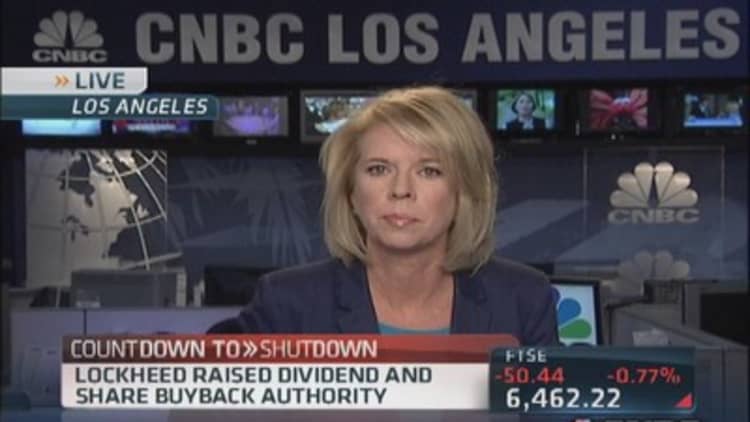Turkey appears likely to sign a multibillion-dollar missile deal with a manufacturer in China rather than with defense contractors in Europe or the U.S. The move may be as much about bolstering Turkey's own defense industry as it is about buttressing its military.
A senior Turkish official told reporters in Ankara that it was "highly likely" that the country would strike a deal for its first anti-missile system within six months and would choose a Chinese firm over competing . and European front-runners.
A member of the North Atlantic Treaty Organization (NATO), Turkey has long considered purchasing such a defense system, but discussions have accelerated in recent months because of Syria's civil war.
"There is a short list, and China is in first place. We are going to invite the Chinese. The offer is on the table, and we are going to turn this offer into a contract," Mayar Bayar, the Turkish undersecretary of defense industries, said Thursday, according to Reuters. "It is highly likely, a great probability, we will sign the contract with the firm we have chosen in first place."
(Read more: European defense contractors want drone program)

He added that the Chinese Precision Machinery Import and Export Corp (CPMIEC)—which NATO has sanctioned for violations of the nuclear nonproliferation act—placed the lowest bid of $3.44 billion. It undercut the U.S.'s Raytheon and Franco-Italian Eurosam, both of which submitted bids over $4 billion.
However, analysts said that selecting a Chinese rather than Western company offered Turkey benefits other than cost savings.
In particular, China is more apt to agree to share the technological and intellectual know-how behind its anti-missile system, which will let Turkey build a version and bolster its growing defense export sector.
U.S. companies tend to be reluctant to risk transferring intellectual property to third parties that could become competitors.
Edward Hunt, senior consultant at defense intelligence firm IHS Jane's, said Turkey is eager to develop its defense export potential, adding to the appeal of striking a deal with the Chinese.
(Read more: Pentagon cuts, but it's still not enough)
"China has made it quite clear it is willing to transfer a considerable amount of technological knowledge. … China does not expect to be stuck at its current technology levels for very long—it expects to be a generation ahead in five years, when it will be able to produce a better version [of its anti-missile system], Hunt told CNBC on Thursday.
In contrast, buying from a Western firm would come with "strings attached," said Michel Merluzeau, the managing partner of aerospace and defense intelligence firm G2 Solutions.
"You never have full control of a U.S.-manufactured system," he told CNBC. "There are some levels of access to the that they will never have. … That the Turkish desire to own the system, to develop it technologically, to become a full partner of the Chinese company does seem fairly logical."
(Read more: Finding the next Humvee—firms battle for giant defense contract)
Turkey has made defense purchases before with the intention of creating replicas for its own or others' use. For instance, it struck a deal in 2007 to buy A129 attack helicopters from Italian-British stalwart AgustaWestland, and then created a derivative version called the T129.
Merluzeau said that buying a Chinese rather than U.S. system would be less time-consuming and arduous for Turkey.
"A deal for Raytheon's Patriot system would have to go back and forth to Congress. … There is some red tape in the U.S. acquisition process that may not exist with the Chinese. … They are very clearly more flexible, more nimble in some areas," he said.

